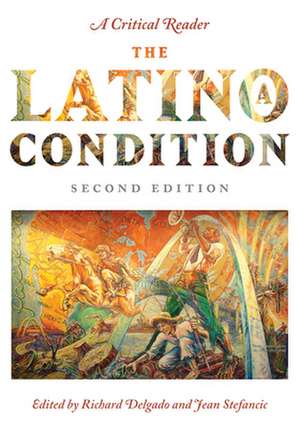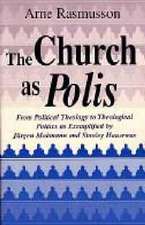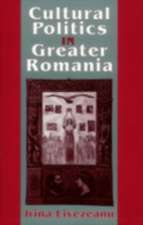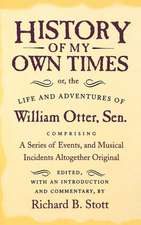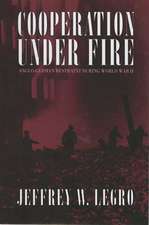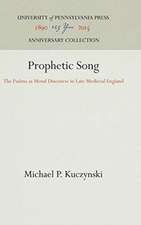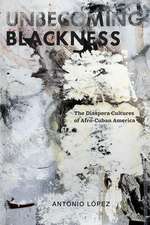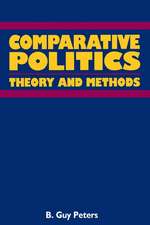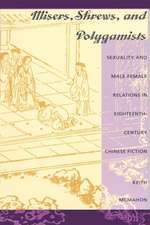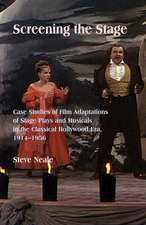The Latino/a Condition – A Critical Reader, Second Edition
Autor Richard Delgadoen Limba Engleză Paperback – 14 dec 2010
How did Spanish-speaking people come to live in the United States?
Is the Latino family a source of strength or oppression? What about Catholicism?
Should the United States try to control Latino immigration, and is this even possible?
What are the most common media stereotypes of Latino people?
Are Latinos white? What role does law play in the racial construction of the group?
Collecting a wealth of perspectives on these and other issues central to the Latino/a experience, Delgado and Stefancic offer a broad portrait of Latino/a life in the United States at the beginning of the twenty-first century.
| Toate formatele și edițiile | Preț | Express |
|---|---|---|
| Paperback (1) | 315.16 lei 6-8 săpt. | |
| MI – New York University – 14 dec 2010 | 315.16 lei 6-8 săpt. | |
| Hardback (1) | 609.95 lei 6-8 săpt. | |
| Wiley – 14 dec 2010 | 609.95 lei 6-8 săpt. |
Preț: 315.16 lei
Nou
Puncte Express: 473
Preț estimativ în valută:
60.31€ • 62.22$ • 50.33£
60.31€ • 62.22$ • 50.33£
Carte tipărită la comandă
Livrare economică 26 martie-09 aprilie
Preluare comenzi: 021 569.72.76
Specificații
ISBN-13: 9780814720400
ISBN-10: 0814720404
Pagini: 646
Dimensiuni: 180 x 253 x 38 mm
Greutate: 1.32 kg
Ediția:Revised
Editura: MI – New York University
ISBN-10: 0814720404
Pagini: 646
Dimensiuni: 180 x 253 x 38 mm
Greutate: 1.32 kg
Ediția:Revised
Editura: MI – New York University
Cuprins
Contents; Acknowledgments xvi; Introduction 1; Richard Delgado and Jean Stefancic; Part I: The Shape of the Latino Group: Who Are We and What Are We Talking about Anyway?; 1. Welcome to the Old World 6; Earl Shorris; 2. Hispanics? Thats What They Call Us 12; Suzanne Oboler; 3. Chance, Context, and Choice in the Social Construction of Race 18; Ian F. Haney López; 4. Latino/a Identity and Multi-Identity Community and Culture 33; Leslie G. Espinoza; 5. Building Bridges: Latinas and Latinos at the Crossroads 41; Berta Esperanza Hernández-Truyol; 6. Life in the Hyphen 53; Ilan Stavans; 7. Re-imaging the Latino/a Race 61; Angel R. Oquendo; 8. The Question of Race 78; Clara E. Rodriguez; 9. Gateway to Whiteness: The Census and Hispanic/Latino Identity 90; Gutavo Chacon Mendoza; From the Editors: Issues and Comments 102; Suggested Readings 104; Part II: Conquest and Immigration: How We Got (Get) Here; 10. Occupied America 112; Rodolfo Acuña; 11. The First U.S. Latinos: White Wealth and Mexican Labor 119; Joe R. Feagin; 12. Tracing the Trajectories of Conquest 127; Juan F. Perea; 13. Latinos in the United States: Invitation and Exile 143; Gilbert Paul Carrasco; 14. Greasers Go Home: Mexican Immigration, the 1920s 160; Rodolfo Acuña; 15. Ambivalent Reception 172; Wayne A. Cornelius; 16. No Poor Need Apply 179; Kevin R. Johnson; 17. The Privatization of Immigration Control 189; Robert Koulish; 18. Puerto Rico and the Federal Government 198; Roger Daniels; 19. The Cuban American Exile Ideology 206; Guillermo J. Grenier; From the Editors: Issues and Comments 214; Suggested Readings 216; Part III: Nativism, Racism, and Our Social Construction as a Problem Group: How Once We Were Here, We Were Racialized by the Dominant Culture; 20. A Separate and Inferior Race 227; José Luis Morín; 21. Anglo-Saxons and Mexicans 247; Reginald Horsman; 22. Occupied Mexico 252; Ronald Takaki; 23. Initial Contacts: Niggers, Redskins, and Greasers 264; ; Arnoldo De León; 24. The Mexican Problem 278; Carey McWilliams; 25. The Mexican Question in the Southwest 281; Emma Tenayuca and Homer Brooks; 26. The Master Narrative of White Supremacy in California 291; Tomás Almaguer; 27. Are Anti-Immigrant Statements Racist or Nativist? What Difference Does It Make? 301; René Galindo and Jami Vigil; From the Editors: Issues and Comments 315; Suggested Readings 317; Part IV: Racial Construction and Demonization in Mass Culture: Media Treatment and Stereotypes; 28. Racial Depiction in American Law and Culture 328; Richard Delgado and Jean Stefancic; 29. Hispanic Stereotyping 340; Charles Ramirez Berg; 30. Imaging Mexican Americans: Rationalizing Oppression 349; Joe R. Feagin; 31. From El Bandido to Gang Member 358; Mary Romero; 32. The Triple Taboo 363; Richard Delgado; 33. The War on Terrorism and Its Consequences for Latinas/os 379; Steven W. Bender; 34. Latinos, Inc.: The Marketing and Making of a People 386; Arlene Dávila; 35. Repercussions of Latinos Colonized Mentality 393; Laura M. Padilla; From the Editors: Issues and Comments 400; Suggested Readings 403; Part V: Counterstories: We Begin to Talk Back and Name Our Own Reality; 36. My Grandfathers Stories and Immigration Law 411; Michael A. Olivas; 37. Storytelling for Oppositionists and Others 424; Richard Delgado; 38. I Am Joaquín: Rodolfo Corky Gonzales and the Retroactive Construction of Chicanismo 449; George Hartley; 39. Borderlands 463; Gloria Anzaldúa; 40. Rodrigos Chronicle 479; Richard Delgado ; 41. The Significance of Narrative for Outsiders 486; George A. Martinez; 42. Narrative, Storytelling, and the Mantra of Intersectionality 498; Antonia Darder and Rodolfo D. Torres; 43. Insurgent Metaphors 504; Otto Santa Ana; From the Editors: Issues and Comments 512; Suggested Readings 514; Part VI: Rebellious Lawyering and Resistance Strategies: We Fight Back; 44. The Idea of a Constitution in the Chicano Tradition 521; Gerald P. López; 45. Early Chicano Activism: Zoot Suits, Sleepy Lagoon, and the Road to Delano 529; Rodolfo Acuña; 46. Breaking the Law on Principle 551; Michael A. Olivas; 47. Life in the Trenches 567; Oscar Zeta Acosta; 48. Legal Violence and the Chicano Movement 579; Ian F. Haney López; 49. Is a Burrito A Sandwich? 587; Marjorie Florestal; 50. The Work We Know So Little About 600; Gerald P. López; 51. Should Good People Be Prosecutors? 612; Paul Butler; From the Editors: Issues and Comments 618; Suggested Readings 620; Part VII: Revisionist Law: Does the Legal System Work for Us?; 52. The Black/White Binary Paradigm of Race 629; Juan F. Perea; 53. The Black/White Binary: How Does It Work? 644; Richard Delgado; 54. Chicano Indianism 660; Martha Menchaca; 55. Mexican Americans as a Legally Cognizable Class 673; Richard Delgado and Vicky Palacios; 56. Mexican Americans and Whiteness 687; George A. Martinez; 57. Mexican Americans and the Faustian Pact with Whiteness 697; Neil Foley; 58. Race and Erasure: The Salience of Race to Latinos/as 704; Ian F. Haney López; 59. Brown over Other White: Mexican Americans Litigation Strategy in School Desegregation Lawsuits 728; Steven H. Wilson; From the Editors: Issues and Comments 742; Suggested Readings 744; Part VIII: Assimilation: Maybe Our Best Strategy Is Just to Duck?; 60. LULAC and the Assimilationist Perspective 753; David G. Gutiérrez; 61. Melting Pot or Ring of Fire? 764; Kevin R. Johnson; 62. Assimilation and Demographic Replenishment 772; Mary Waters; 63. A Scholarship Boy 777; Richard Rodriguez; 64. Masks and Acculturation 781; Margaret E. Montoya; 65. The Mexican Case: The Story of the Immigrant Second Generation 795; Alejandro Portes and Rubén G. Rumbaut; 66. Harvard Homeboy 802; Ruben Navarrette, Jr.; 67. Dropping the Hyphen 809; Tanya Golash-Boza; 68. Going to School: Two Struggles 817; Julio Cammarota; From the Editors: Issues and Comments 831; Suggested Readings 833; Part IX: Splits and Tensions within the Civil Rights Community; 69. Over the Rainbow 841; Neil Foley; 70. Who Counts?: Title VII and the Hispanic Classification 855; Alex M. Saragoza, Concepción R. Juarez, Abel Valenzuela, Jr., and Oscar Gonzalez; 71. Latinegras: Desired WomenUndesirable Mothers, Daughters, Sisters, and Wives 864; Marta I. Cruz-Janzen; 72. Mestizaje and The Mexican Mestizo Self: No Hay Sangre Negra, So There Is No Blackness 872; Taunya Lovell Banks; 73. Inventing Race 879; John D. Skrentny; 74. Locating Latinos in the Field of Civil Rights: The Neoliberal Case for Radical Exclusion 888; Richard Delgado; 75. African-Americans, Latinos, and the Construction of Race Toward an Epistemic Coalition 905; George A. Martinez; 76. Do Immigrants Take Away Black Jobs? 911; Kevin R. Johnson and Bill Ong Hing; 77. Our Next Race Question: The Uneasiness between Blacks and Latinos 920; Jorge Klor De Alva, Earl Shorris, and Cornel West; From the Editors: Issues and Comments 932; Suggested Readings 934; Part X: Sex, Gender, and Class: Sure Im a Latino, but Im Still Different from YouHow about It?; 78. Mexican Gender Ideology 940; Adelaida R. Del Castillo; 79. Latinas and Religion: Subordination or State of Grace? 944; Laura M. Padilla; 80. In the Beginning He Wouldnt Lift Even a Spoon 956; Beatriz M. Pesquera; 81. Domestic Violence against Latinas 970; Jenny Rivera; 82. Chicano Rap: Machos y Malas Mujeres 981; Pancho McFarland; 83. Latina Sexuality, Reproduction, and Fertility as Threats to the Nation 994; Leo R. Chavez; 84. Maid in the U.S.A. 1013; Mary Romero; 85. Three Perspectives on Workplace Harassment of Women of Color 1023; Maria L. Ontiveros; 86. Whats in a Name?: Retention and Loss of the Maternal Surname 1033; Yvonne M. Cherena Pacheco; From the Editors: Issues and Comments 1045; Suggested Readings 1047; Part XI: English-Only, Bilingualism, Interpreters: You Mean I Cant Speak Spanish?; 87. Hold Your Tongue 1057; James Crawford; 88. The English Language Movement 1063; Steven W. Bender; 89. American Languages, Cultural Pluralism, and Official English 1069; Juan F. Perea; 90. How the Garcia Cousins Lost Their Accents 1084; Christopher David Ruiz Cameron; 91. The Law of the Noose: A History of Latino Lynching 1092; Richard Delgado; 92. Hernandez: The Wrong Message at the Wrong Time 1105; Miguel A. Méndez; 93. Attorney as Interpreter 1111; Bill Piatt; 94. Buscando America: Why Integration and Equal Protection Fail to Protect Latinos 1118; Juan F. Perea; 95. The Latin Look and Walter Cronkite Spanish 1134; Arlene Dávila; From the Editors: Issues and Comments 1140; Suggested Readings1142; About the Contributors 1149; Index
Recenzii
A valuable and highly informative discussion of the theoretical questions that underlie the production of popular culture in the twenty-first century. Latin American Research Review
Notă biografică
Richard Delgado is John J. Sparkman Chair of Law at the University of Alabama and one of the founders of critical race theory. His books include The Latino/a Condition: A Critical Reader (coedited with Jean Stefancic) and The Rodrigo Chronicles.
Descriere
Offers a broad portrait of Latino/a life in the United States at the beginning of the twenty-first century
